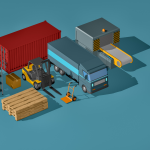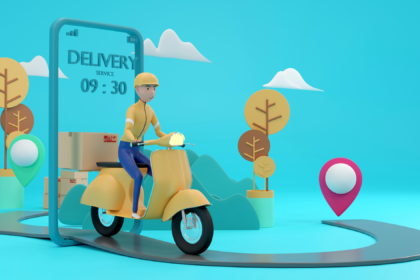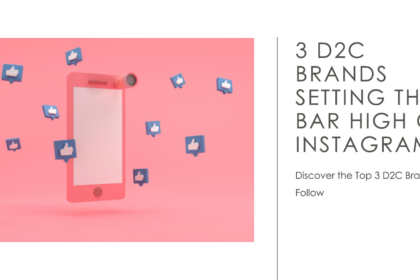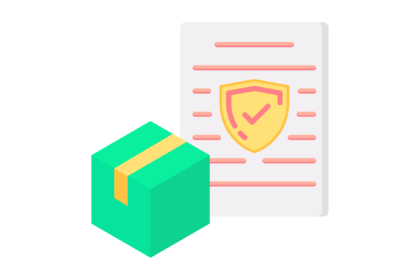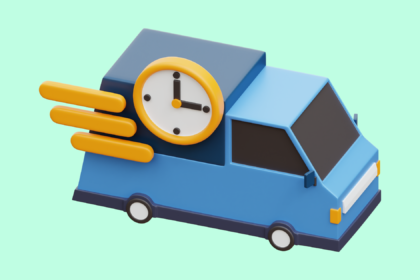How do you go from owning a trailer business in the 90s to reinventing premium belts for adventure seekers and building a successful online brand that shares the space with the likes of Nordstrom, Nike, and Gucci?
Nexbelt would have the answers for it, as they’ve done exactly that.
Nexbelt is a seven-year-old brand selling premium ratchet belts across the USA and Canada. Though the ratchet system originated in Asia, Nexbelt had it re-engineered and made it upscale by creating exclusive designs, molds, and tools. Today, the brand has three US patents and is a global leader in selling premium belts.
We spoke to the CEO of Nexbelt, Tom Hunsucker to know more about how they grew to become a differentiator in the adventure apparel industry in the US, and what it means to be in e-commerce to make it big. Here’s what Tom had to say about it.
Hey Tom, It’s great connecting with you. Could you give us a brief introduction about yourself and we’d like to hear about the story of nexbelt in your words?
Hey all, I’m Tom Hudsucker. I am one of the co-owners of Nexbelt. It’s a family-owned business with my sister Francis, and her husband, Eddie.
We started as a boat trailer company about 25 years ago and became the largest custom boat trailer manufacturer in the United States when we sold it in 2007.
As we made good money and were thinking of early retirement, my sister and her husband happened to vacation in Vietnam, and encountered the ratchet technology belt; a system popular in Asia, and wanted to introduce it here in the US.
Once we started researching the existing ratchet technology in Asia, we found a bunch of flaws that needed to be addressed to make it a better product and market it to the golfing community.
For example, we sell styles and not sizes as our belts can be customized on all fronts from the buckle, to the hidden ball marker, which eventually led us to be nicknamed the James Bond belt.
How did you kick start your business?
We started by approaching salesmen who specialized in selling goods by brick and mortar shop-hopping.
We wanted to push our business a bit further, given the larger market we can cater to, and thus, created a website. This was about ten years ago.
Today, we have about 40 players on the PGA tour representing our belts, and they love it.
Though we’re still a comparatively small company on the operations front, from southern California with 30 employees, we are competing with big names such as Nike, NordStrom, etc.
At present, we have diversified our styles, ventured into golf dress, we also do a lot of EDC or gundogs for the police officers and people who do concealed carry.
What made us unique was that we had got the patent on the scaling system.
Right now we have the largest collection of ratchet belts in the world with all the designs we have. And that’s just been our philosophy, give, be creative, be innovative, and don’t copy what other people are doing.
What’s intriguing in your story is that you transformed something as ubiquitous as a belt and created an entirely new outlook on it. What would be your advice to businesses starting to build a success story like yours?
The first, and most important of all, I would say, don’t have a lifestyle that can’t support the business. Because you’re inevitably going to go through hurdles and downtimes and end up not being able to afford to pay for yourself.
We applied this even in our trailer business, where we borrowed $26,000 from my mom, and we had a dull start, we paid her off by the end of the year.
Also, the starting stage of the business is the hardest. Your business might demand ungodly hours, with little profit, but once you make it sustainable, there’s no turning back.
And though Nexbelt was well padded from the profit of our trailer business, we went into the venture with the same “hey, look, let’s pretend that this is a startup, and we work ourselves out of the garage again.” mindset to help ourselves be mindful of our decisions.
Speaking of downtimes, what did you do to sustain your business during the pandemic? Did your business have to go through difficult times during that phase? And how did you manage to overcome it?
We came across a situation where we had to shut down our unit in California during the mandated shutdown. We ran our operations with a very small crew of family members and two employees following social distancing.
Honestly, I’ve never worked so hard in my life since I had to handle all the stuff from marketing to assembling the belts as we were still selling like we did pre-pandemic.
The pandemic also worked in our favor in a way as a group of people started to buy more firearms in a panic and those firearms needed belts. Meanwhile, the restrictions were slowly relaxed and we could bring back our employees.
We could also claim a covid relief fund and expand our operations with the fund. We’re also fortunate to have a great team working for us. I enjoy coming to work with my team who are passionate about their jobs.
As you mentioned, you’re a team of 30; how do logistically operate in all major marketplaces?
None of this would be possible without the mobility that tech innovations like yours provide.
SaaS startups like LateShipment.com identify a problem, and say, hey, I can solve this problem for you.
So you’re having these issues, this is how you solve it, making it possible for a smaller team of people to manage all operations and provide the quality of service that only the big names could afford to provide a decade ago.
For example, with Shopify, all these apps come in and enable businesses like ours with shipping management, customer experience, returns, etc.
Sometimes it can get overwhelming, but it’s easy to land on great products to assist your e-commerce as no matter the marketing efforts, the products speak for themselves.
We loved hearing that from you. Moving on to tackling high business traffic season like the holiday season, how do you handle the upsurge of orders and order volumes? Do you have specific tips?
We make sure we have more employees to handle the scaling. Last year, we did a distribution center for us to help us move products out. We’ve also run into a bunch of problems meanwhile.
The shipping company we partnered with really messed up, and we had to bear the brunt of their mishap. We then switched to another shipping company and also deployed a fulfillment center to prevent any such further discrepancies.
Using Lateshipment.com has given us a great deal of confidence in engaging with our customers. Not just that, your product also enables us to build our customers’ confidence in us.
We noticed your brand focuses on customer experience. How is your teamwork towards being an experienced focused brand?
I think it boils down to two things. The first thing is the product quality being a unique selling point.
When I worked in Nordstrom, I got to see how the brand focused on the service side of the business. I applied my learnings there in both my trailer business and Nexbelt.
We can just focus on the commodity, but when it’s just a commodity, there’s a lot to compete with. For example, you can go and get a belt for 20 to 30 $ at eBay or Amazon, but at the end of the day, the buyer wouldn’t get the quality we provide.
That’s why we design our molds, do everything from scratch, and never outsource any part of our manufacturing. The second one would be proactive resolutions. When a customer has a problem, make sure you address it even if they haven’t reached you yet.
Firstly, using Lateshipment.com has given us a great deal of confidence in engaging with our customers. Not just that, your product also enables us to build our customers’ confidence in us.
There are so many things that could go wrong in an online transaction from the moment they come to our website. Using Lateshipment.com has made us not worry about the post-purchase phase of communication and customer service and be assured that we’re doing our best in providing the context of the status of their orders regularly.
We adopted multiple automating software like Kalviyo, MailChimp, and Lateshipment.com; which helped us create loyalty programs and position ourselves as a brand that’s more than just a commodity
What do you think has been the biggest driver of an advantage there in terms of being able to attract customers?
Our website is our biggest point of sales, but I would be lying if I said I was sold on the point of going digital since the beginning.
We were a bit old school and were hesitant to adopt new-gen stuff. But at some point we could see there was a market online we could tap in and today, that’s our primary source of sales.
We hired an agency to work on the ads, and we saw our brand grow. We could channel selling to an audience interested in outdoor activities and golfing.
We eventually adopted multiple automating software like Kalviyo, MailChimp, and even Lateshipment.com; which helped us create loyalty programs and position ourselves as a brand more than a commodity.
The upward mobility software products like these have given is immense. We have seen about a 700% increase in sales by just being able to reach out to more audiences through our email campaigns and stay connected with them.
Do you have any advice for businesses, especially those who are primarily selling online, as far as the checkout experience in the post-purchase experience is concerned?
Providing your customers multiple options to make payments, and making the payment process short are some great ways to avoid last-minute cart abandonment. Beyond that, being mobile-friendly has been beneficial for us, given, 60% of our website traffic is through mobiles.
Interview with LateShipment.com CEO, Sriram Sridhar. Transcripted by Hemalatha Sekar.


